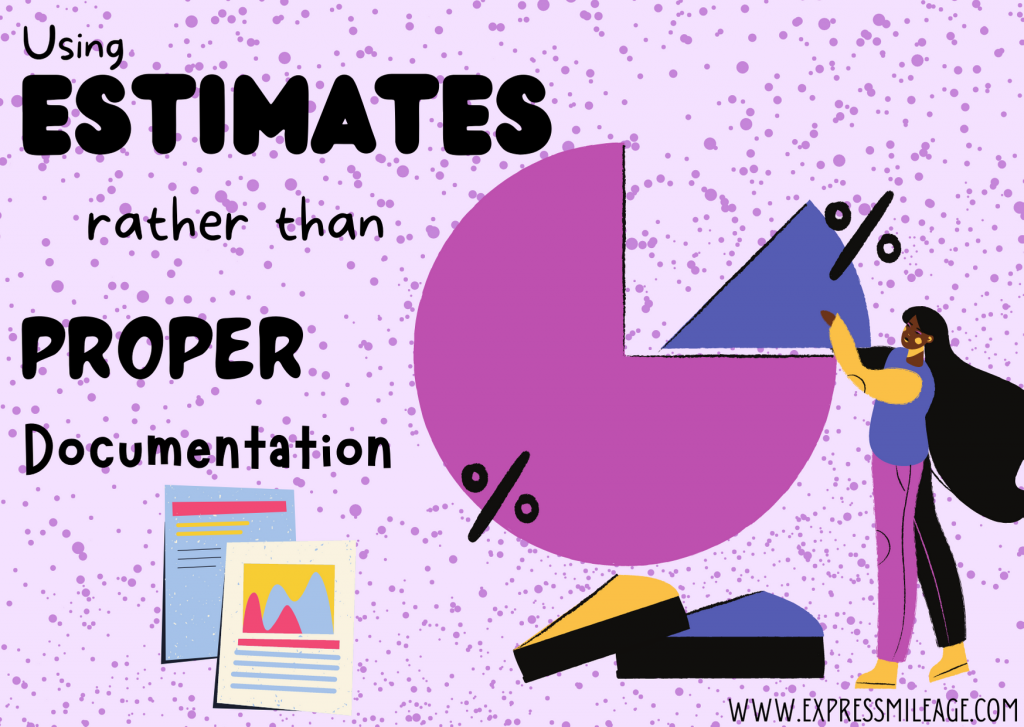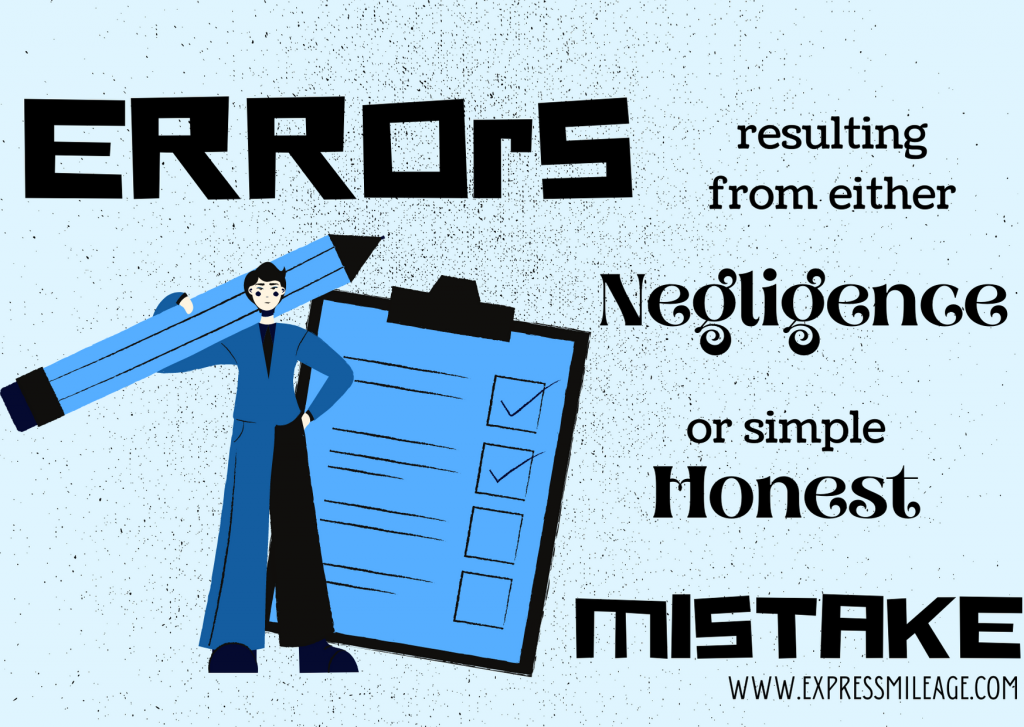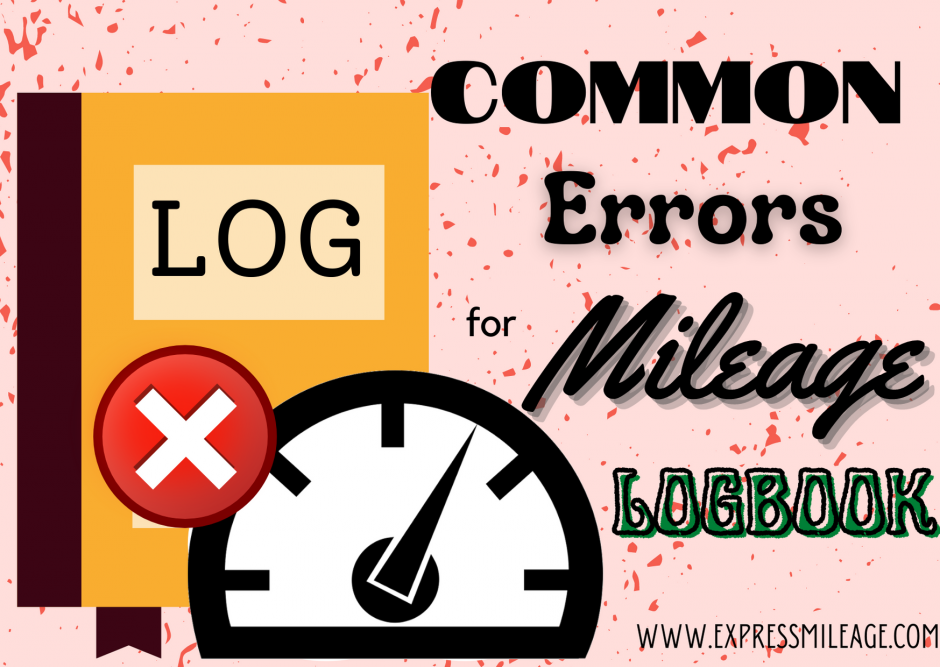When it comes to business records, everything should be accurate and complete with supporting documents to show. The vehicle mileage log is no exception, BUT mistakes really happened.
For calculation, you need to log the following details:
- Time and date of the drive for business purposes
- Starting point
- Destination or place of the drive
- The business purpose of the drive
- The total distance of the drive or odometer readings
NOTE: IRS issues standard mileage rates for 2021
Here are some of the common errors that few small businesses made for mileage logbooks:

- Excluding the business purpose
The business purpose of the drive is needed to record for the IRS to determine the main purpose of the trip. This could lead to disqualification due to incomplete details on your business mileage log. There could be a possible denial on tax court as well because of your negligence act.

- Using estimates rather than proper documentation
Doing estimations is a big NO. Estimating every piece of information in your record book would create a big mess and possible penalties on your end. If you didn’t keep records on your business drives each day, week or month, or the entire year it will be hard for you to remember everything. Logging in every day is a must to avoid undue stress and inaccurate records. Using an online mileage log is the most convenient way to avoid the hassle and loss of records.

- Errors resulting from either negligence or simple honest mistakes
You followed all the details that need to be logged for the business purpose trips but you forgot to include your personal trips and other vehicle expenses which make it not a reliable proof. The Tax Court not only needs the mileage log for time and date, starting point, destination, business purposes, total distance BUT also the other costs.
The U.S. Tax Court is a federal court established by Congress that hears and resolves tax-related disputes and issues defined by the Internal Revenue Service (IRS) before paying the disputed amount.
Small to big details are significant to the IRS. All the business mileage log information saved matters for Taxes and any of your claims. Even your logbook looks pretty good, it may not pass an IRS tax audit if there are errors and questionable entries. For example, you didn’t include names or initials on some of your visited business trips. Avoiding all these mistakes can help your business mileage claims run smoothly and with no trouble.
The IRS and Tax Court work together to give fair justice to business owners or self-employed individuals. The fundamental rules on mileage log requirements are:
- Proper and complete documentation
- Accurate figures, names, and other important details
- Good compliant
For more related topics you can read:
Whether it’s a tax deduction or for reimbursement purposes using a trustworthy mileage log maker for your business mileage claims is always beneficial to your business. How does it work? FAQs? Pricing?
GET STARTED to find all the answers and what Express Mileage has to offer to you!


